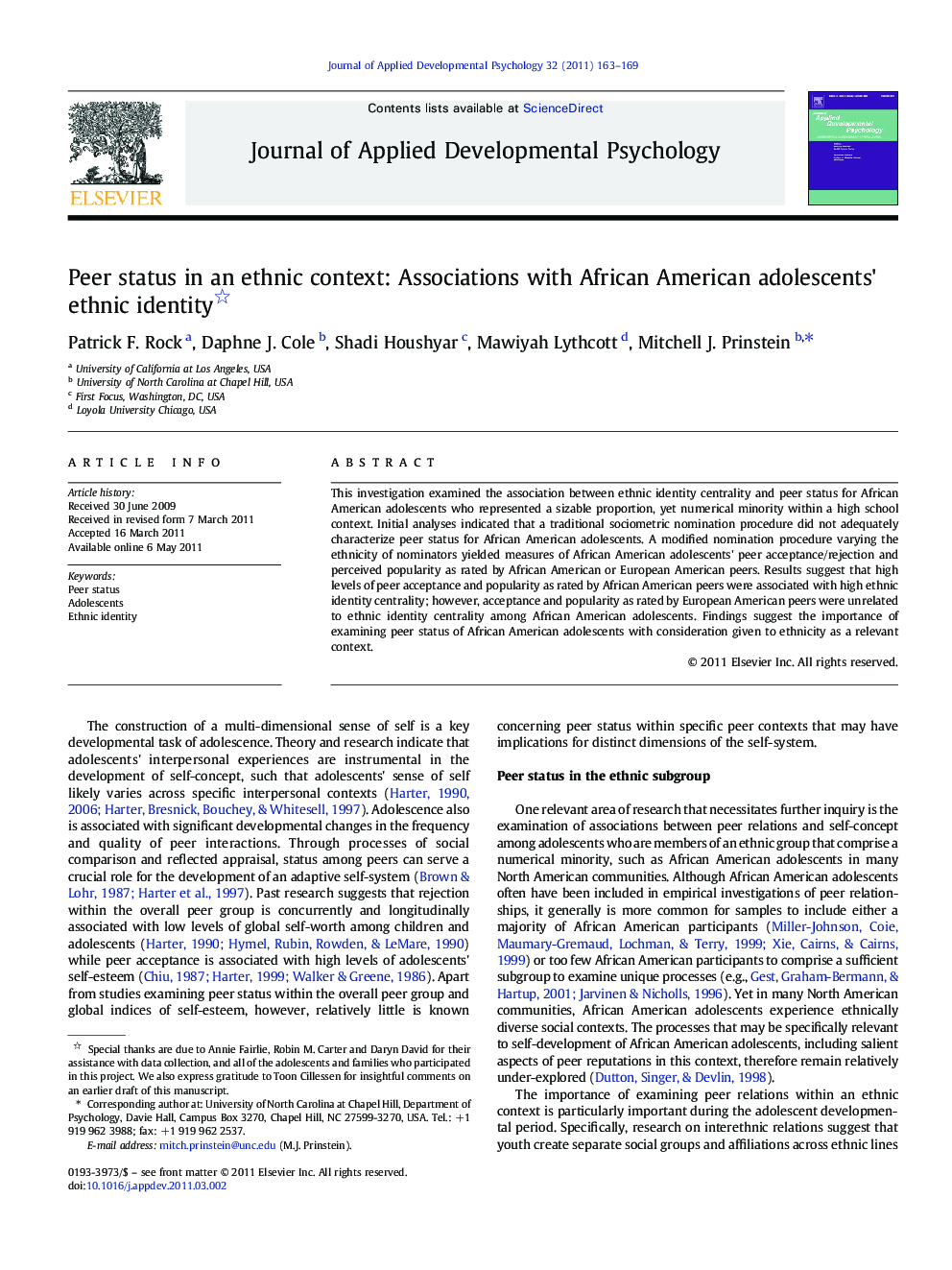| Article ID | Journal | Published Year | Pages | File Type |
|---|---|---|---|---|
| 359936 | Journal of Applied Developmental Psychology | 2011 | 7 Pages |
This investigation examined the association between ethnic identity centrality and peer status for African American adolescents who represented a sizable proportion, yet numerical minority within a high school context. Initial analyses indicated that a traditional sociometric nomination procedure did not adequately characterize peer status for African American adolescents. A modified nomination procedure varying the ethnicity of nominators yielded measures of African American adolescents' peer acceptance/rejection and perceived popularity as rated by African American or European American peers. Results suggest that high levels of peer acceptance and popularity as rated by African American peers were associated with high ethnic identity centrality; however, acceptance and popularity as rated by European American peers were unrelated to ethnic identity centrality among African American adolescents. Findings suggest the importance of examining peer status of African American adolescents with consideration given to ethnicity as a relevant context.
Research highlights► Adolescents' peer relations should be assessed within a salient subgroup. ► African American (AA) youths' peer status was poorly measured using standard methods. ► AA youths' status in an ethnic subgroup predicted ethnic identity centrality. ► But AA youths' peer status within the overall grade was not.
